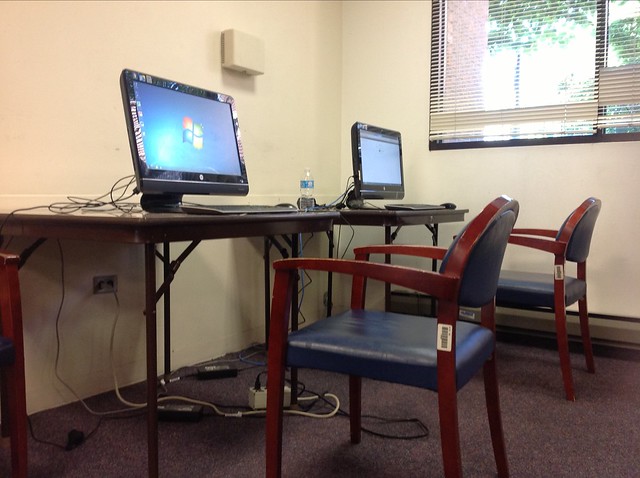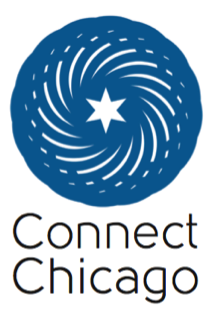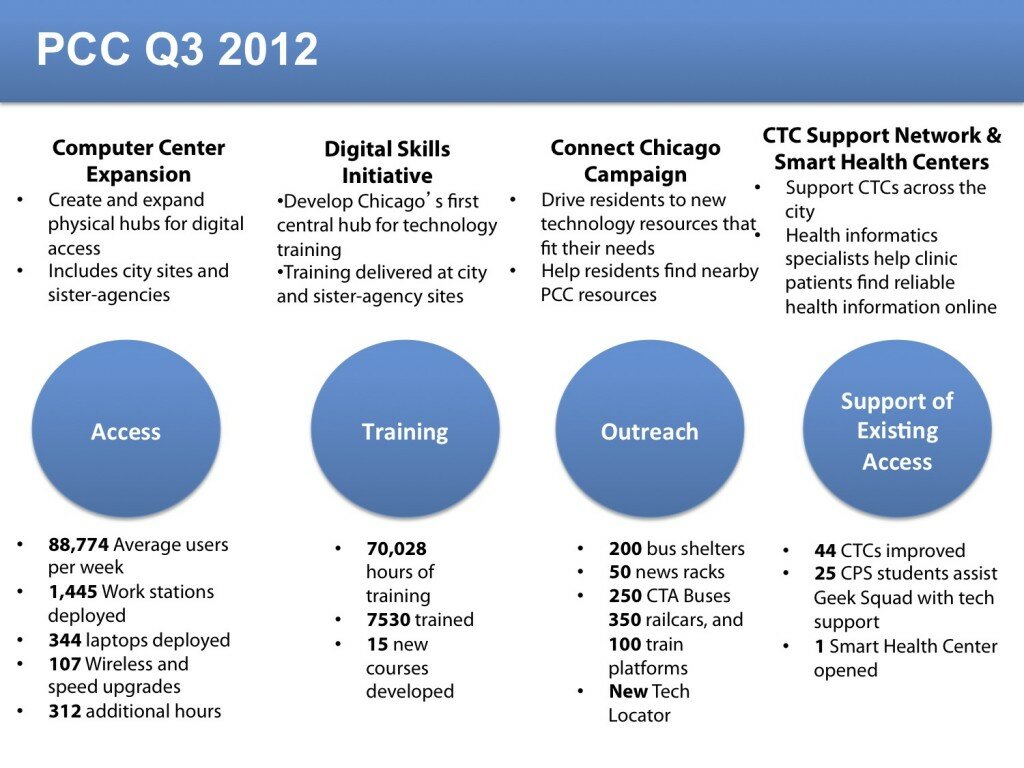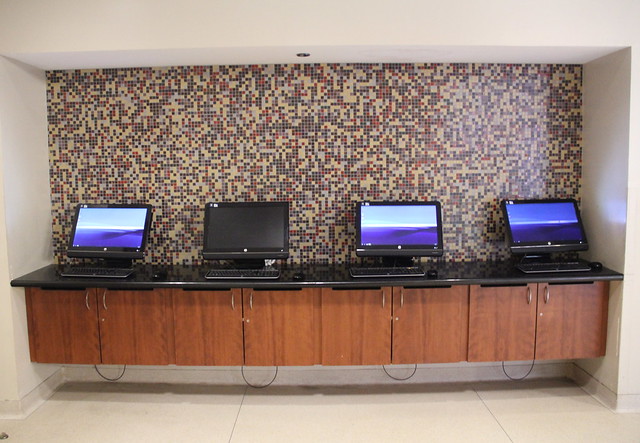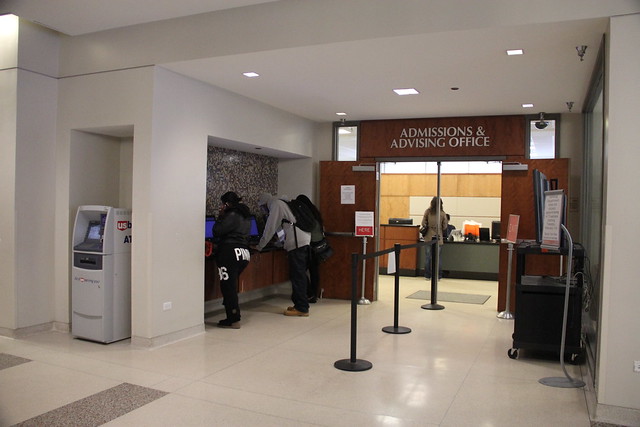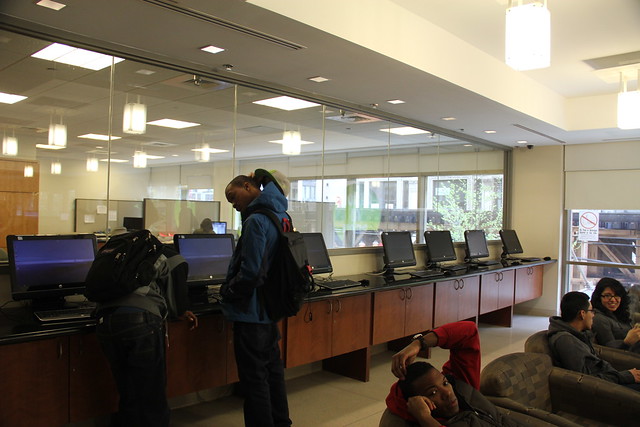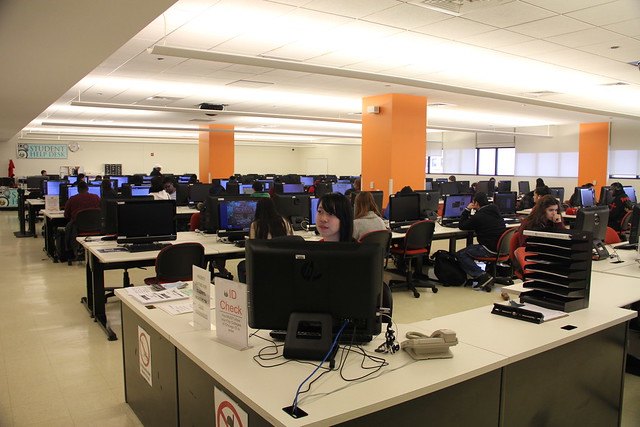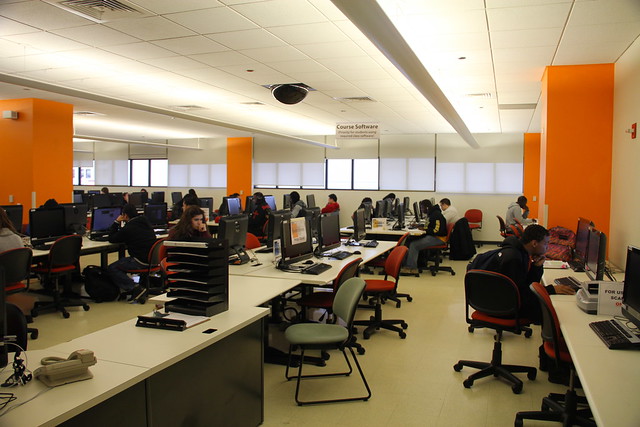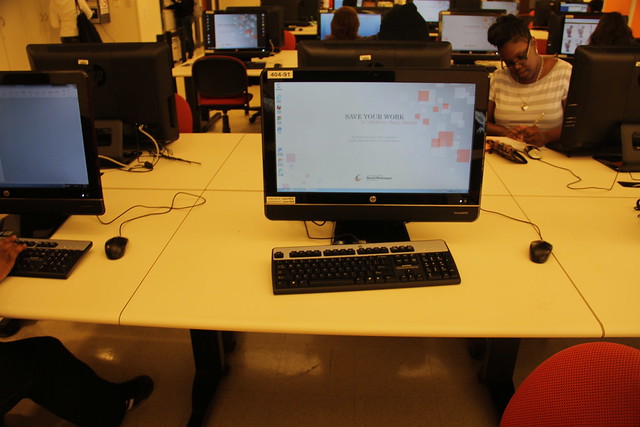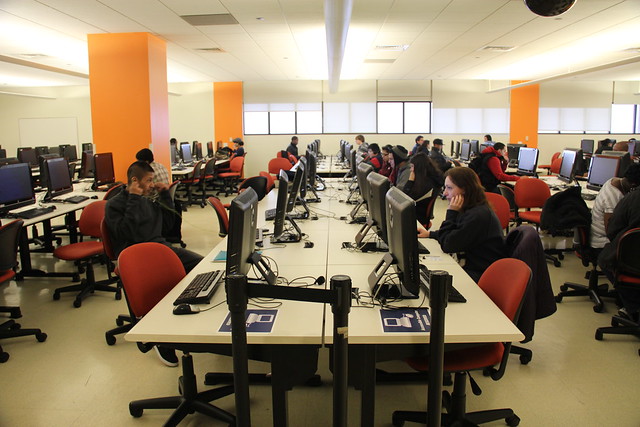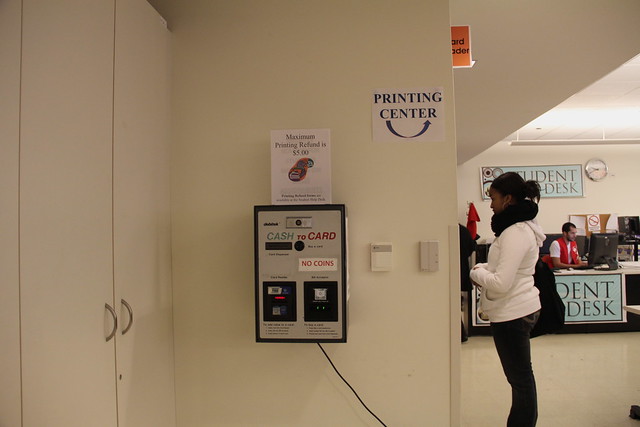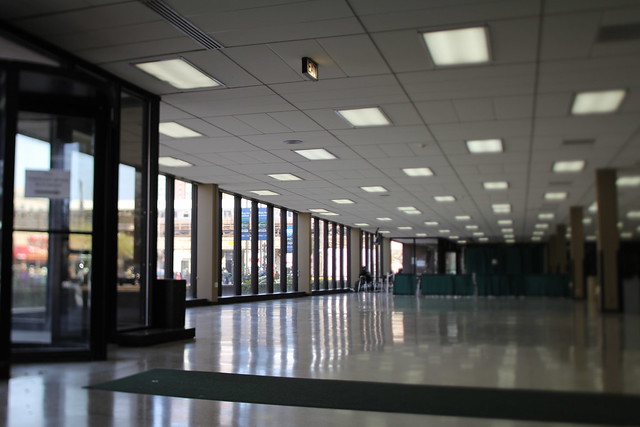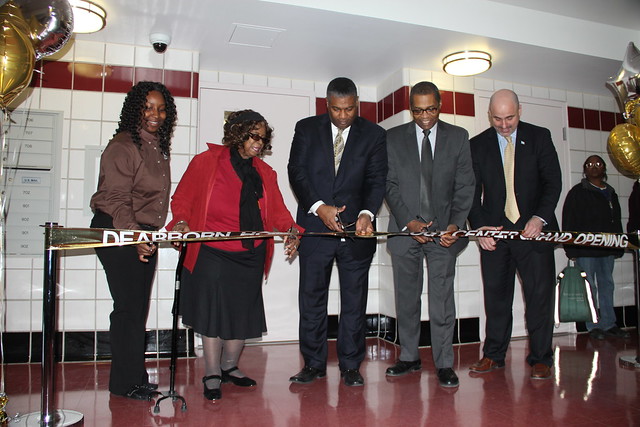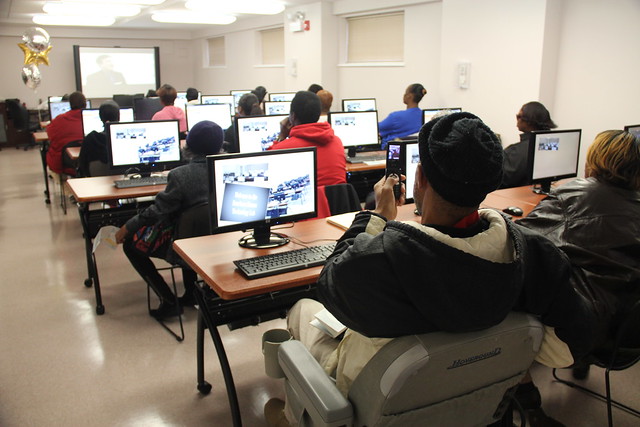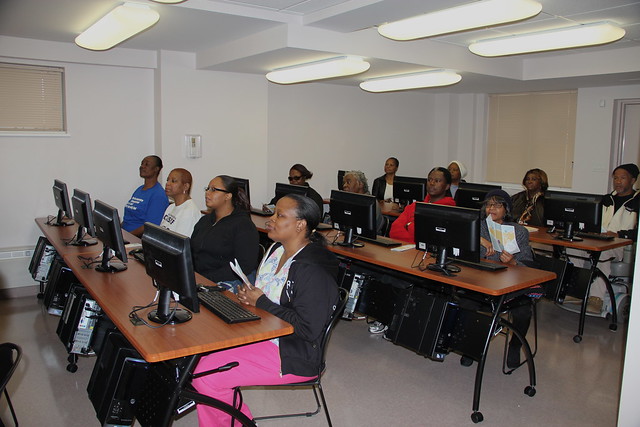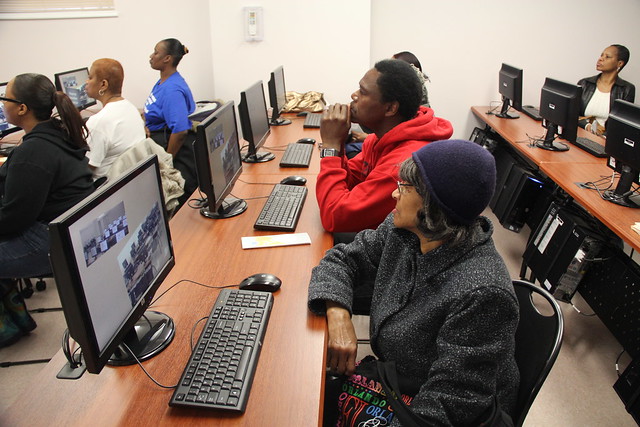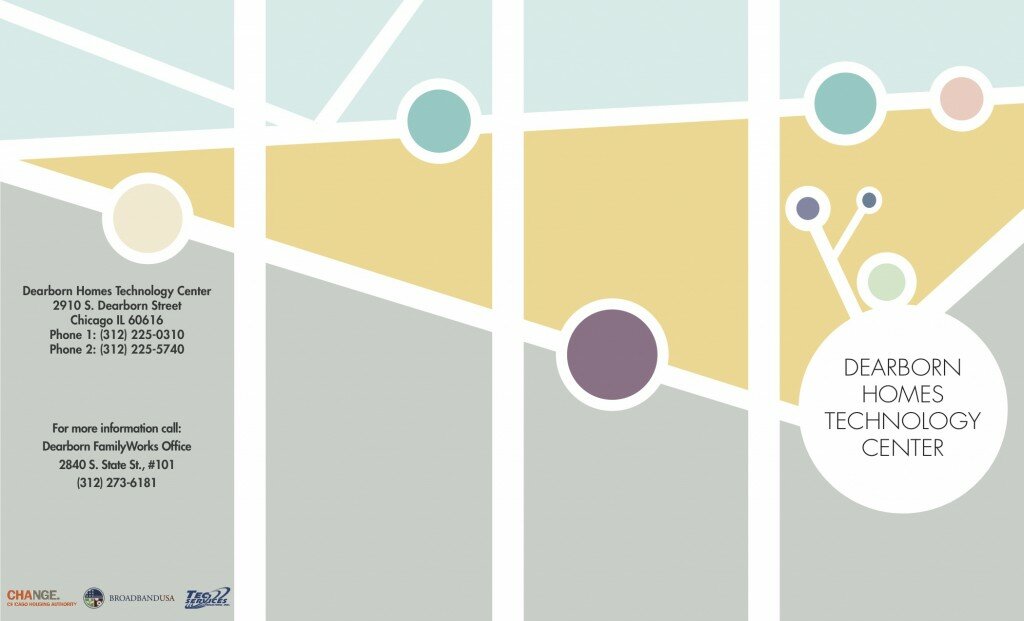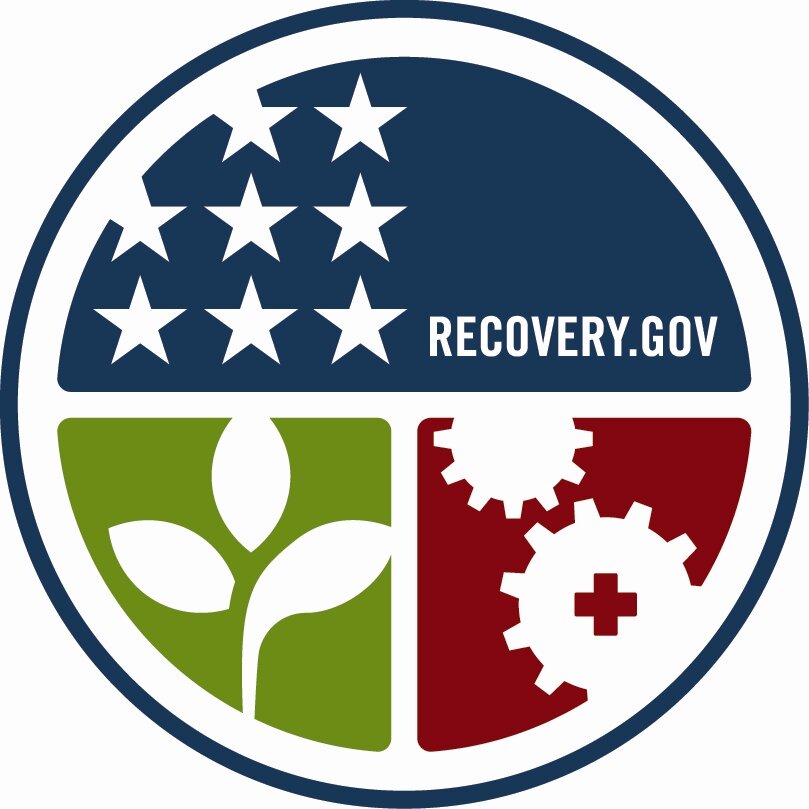 Many current Smart Chicago projects involve the administration of the grants received by the City of Chicago under the U.S. Department of Commerce – National Institute of Standards and Technology under the American Recovery and Reinvestment Act Broadband Technology Opportunities Program (BTOP) for Sustainable Broadband Adoption and the support of Public Computer Centers. As you can see in each of the project pages for our BTOP work, we are delivering on the promise of this important Federal money. Beyond BTOP, however, lies the central challenge for Smart Chicago– to create a funding and innovation framework for making sure every Chicagoan has sustainable access to the Internet and have access to meaningful applications that make their lives better in concrete ways. Following is information about the two grants administered in partnership with the City under this program:
Many current Smart Chicago projects involve the administration of the grants received by the City of Chicago under the U.S. Department of Commerce – National Institute of Standards and Technology under the American Recovery and Reinvestment Act Broadband Technology Opportunities Program (BTOP) for Sustainable Broadband Adoption and the support of Public Computer Centers. As you can see in each of the project pages for our BTOP work, we are delivering on the promise of this important Federal money. Beyond BTOP, however, lies the central challenge for Smart Chicago– to create a funding and innovation framework for making sure every Chicagoan has sustainable access to the Internet and have access to meaningful applications that make their lives better in concrete ways. Following is information about the two grants administered in partnership with the City under this program:
Award No. 17-43-B10507, for Sustainable Broadband Adoption The SmartChicago SBA project page on the NTIA Web site has a wealth of information, including the project application, the award agreement, and quarterly reports filed by the City. Here’s the project summary:
The SmartChicago Sustainable Broadband Adoption program intends to spur economic development in five disadvantaged neighborhoods in Chicago with a comprehensive broadband awareness and adoption program that will include providing computers and training opportunities to more than 11,000 residents and 500 small businesses and not-for-profits. The project intends to create public computer centers at six community centers for working families and expand workstation capacity at four Business Resource Centers, as well as provide 1,500 residents and small businesses who complete a multi-session training course with laptops and netbooks. SmartChicago plans to conduct a citywide multilingual broadband awareness campaign that will reach an estimated 200,000 residents, including ads on radio, TV, print, and city buses; outreach by local community organizations in each neighborhood; and the creation of neighborhood-based Web portals.
LISC/ Chicago is the key entity managing this important project, and they maintain the Smart Communities Web site with a wealth of information about their great work.
Award No. 17-42-B10553 for Public Computer Centers The SmartChicago PCC project page on the NTIA Web site has a wealth of information, including the project application, the award agreement, and quarterly reports filed by the City. Here’s the project summary:
According to a 2009 study commissioned by the City of Chicago, as many as 40 percent of city residents lack home broadband access, making libraries and other public computer centers essential resources for employment, training, and educational opportunities. Over 60 percent of Chicago libraries now report average wait times for a computer of three hours or longer. The SmartChicago Public Computer Centers project proposes a wide-scale upgrade and expansion of workstation capacity at more than 150 locations, including city libraries, community colleges, public housing sites, workforce centers, senior centers, after-school programs, and other community locations throughout Chicago. The project will provide hundreds of thousands of hours of training, including digital literacy instruction and assistance for job seekers. The project plans a specific focus on low-income residents, at-risk youth, senior citizens, people with disabilities, and the unemployed.
Smart Chicago has a number of sub-recipients performing the work under this award.
 Earlier this month, Chicago Chief Technology Officer John Tolva unveiled the city’s very first technology plan. The plan was a result of a year-long process of research, brainstorming, and thinking about how to make all of Chicago competitive in the new digital economy.
Earlier this month, Chicago Chief Technology Officer John Tolva unveiled the city’s very first technology plan. The plan was a result of a year-long process of research, brainstorming, and thinking about how to make all of Chicago competitive in the new digital economy.